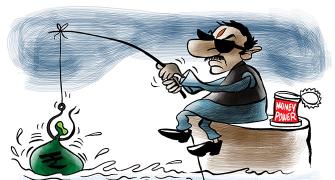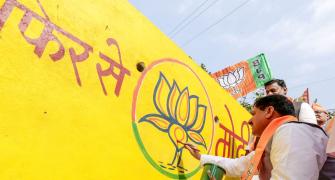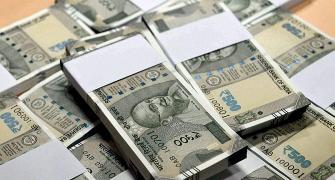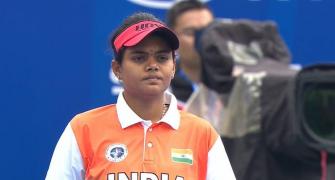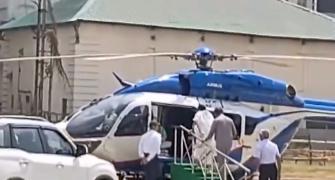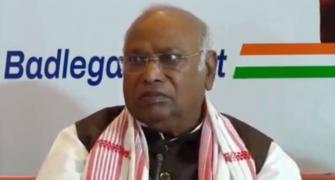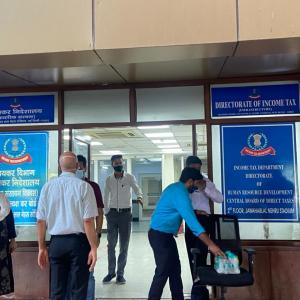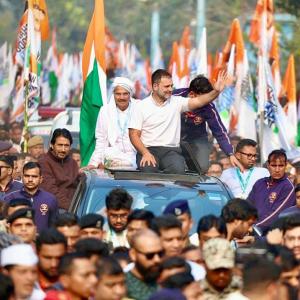Nearly Rs 3,400 crore (Rs 34 billion) in cash and other items were seized in the elections in 2022-2023, an increase of 835 per cent over 2017-2018.
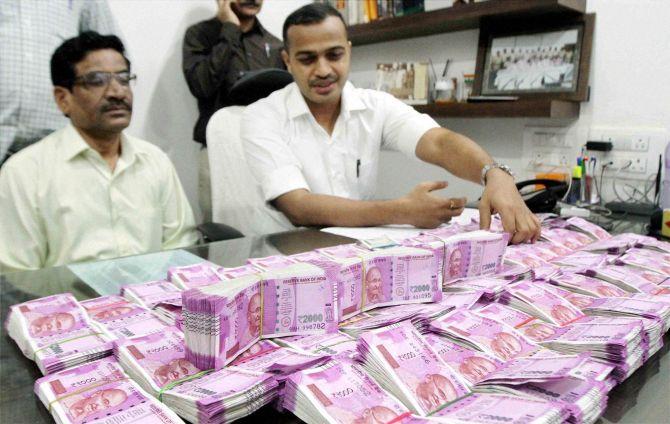
During the 2019 Lok Sabha elections, the then President Ram Nath Kovind had called off polling in Tamil Nadu's Vellore seat on the recommendation of the Election Commission, which had seized Rs 11.5 crore (Rs 115 million) in unaccounted cash meant to lure voters.
The decision to scrap polling on a Lok Sabha seat, although rare, seemingly failed to serve the purpose.
Two months later, in the run-up to the election in Vellore, Election Commission officials again seized Rs 3.5 crore (Rs 35 million) in cash. But this time, the Election Commission went ahead with the polling.
Use of money and other goodies to woo electorates has been an elephant in the room for the Election Commission.
Announcing the schedule for the Lok Sabha polls last week, Chief Election Commissioner Rajiv Kumar shared data of the 'exponential increase in seizures in the last 11 assembly elections'.
Nearly Rs 3,400 crore (Rs 34 billion) in cash and other items were seized in the elections in 2022-2023, an increase of 835 per cent over 2017-2018, the data showed.
Estimates of election-related expenditure of political parties and candidates, and Election Commission seizures, reveal barely the tip of the total election spends of candidates and political parties.
According to a study by the Centre for Media Studies, a think-tank, over Rs 1.5 trillion was spent across various elections held in India from 2009 to 2014.
It termed it a 'conservative estimate', and said more than half of this was unaccounted, or black, money.
According to its report, Poll Expenditure, 2019 Elections, CMS estimated that Rs 55,000 crore to Rs 60,000 crore (Rs 550 billion to Rs 600 billion) were spent on the 2019 Lok Sabha elections. It said it couldn't account for all the expenditure of political parties and candidates.
'On an average, nearly Rs 100 crore (Rs 1 billion) per Lok Sabha constituency has been spent. Overall, it is estimated about Rs 700 per vote was spent in the 2019 elections,' CMS noted.
Of the total figure, only Rs 10,000 crore to Rs 12,000 crore (Rs 100 billion to Rs 120 billion), or 15 tp 20 per cent, were spent by the Election Commission or through formal channels, the CMS report said.
CMS estimated a total election expenditure of Rs 9,000 crore (Rs 90 billion) for the 1998 Lok Sabha polls.
The total estimated election expense increased to Rs 10,000 crore in 1999, Rs 14,000 crore (Rs 140 billion) in 2004, Rs 20,000 crore (Rs 200 billion) in 2009 and Rs 30,000 crore (Rs 300 billion) in 2014, the CMS estimated.
It stated that of these expenditures, the Election Commission's spend in conducting the polls was less than 15 per cent.
The 'high-level committee' on simultaneous polls, in its report submitted earlier this month, relied on an analysis by economists Prachi Mishra and N K Singh that an estimated Rs 4 trillion to 7 trillion, were spent on elections in the preceding five years. The committee said it based its data on 'publicly reported estimates of conducting elections'.
In 2009, the Association for Democratic Reforms analysed accounts of expenditure submitted by all 6,753 candidates who contested the Lok Sabha polls that year.
Of these, only four candidates admitted to spending more than the Election Commission mandated limit for expenditure.
Another 30 admitted to having spent 90 to 95 per cent of the limit. The remaining 6,719 candidates said they spent at best 45 to 50 per cent of the limit, says ADR founder Jagdeep Chhokar.
"So, an astounding 99.99 per cent (recurring) of the candidates said they spent barely 50 per cent of the expense limit," he said.
Chhokar says if India is moving towards a cashless economy, why can't political parties receive funds and make payments digitally.
"Where is the need for cash transactions and why should political parties be receiving funds below a certain threshold, such as Rs 20,000 or Rs 2,000, in cash?"


